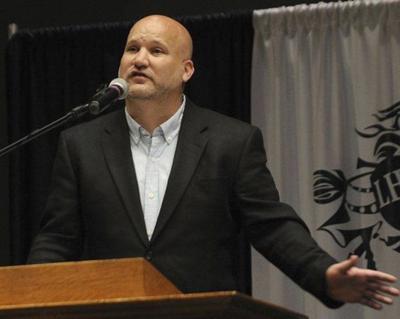BOSTON — State education officials aren't planning to extend the school year into the summer months to make up days lost to the COVID-19 outbreak, but they won't stop districts from going longer.
Public schools in Massachusetts remain closed until May 4 under an executive order issued by Gov. Charlie Baker in response to the coronavirus pandemic.
State Education Commissioner Jeff Riley said Tuesday the state won't force districts to extend the school year beyond the required 185 days, which includes five snow days.
"Schools do not have to make up days that are canceled due to the public health emergency, beyond the previously set aside five school days," Riley said during a remote meeting of the State Board of Education on Tuesday. "The state is not requiring any school to go beyond its previously scheduled 185th day of school."
Baker previously said the state won't require districts to have 180 days of instruction, as required by law, but questions have lingered about whether the year will be extended.
Riley said some superintendents have asked if spring vacation, scheduled from April 20 to 24, could be "swapped out" and those days counted toward the school year. He said the state hasn't made a decision on counting spring break toward the year but will provide guidance to school districts in coming days.
Additionally, the state is planning to excuse students with COVID-19-related absences if schools reopen next month, as currently scheduled.
Riley said the state has received initial approval from the federal government to either postpone or cancel the upcoming MCAS exams.
The tests are required by state and federal law to gauge student performance, and 10th graders are required to pass the English and math portions of the test in order to graduate from high school.
Riley said if the waiver goes through, the state Legislature would still need to give education officials the power to reschedule or postpone the MCAS exams for the current school year.
"If and when that's done, you should expect me to make decisions in short order in the best interest of our students," he said.
Education Secretary Jim Peyser said the state is trying to keep students engaged in studies during the shutdown and isn't going to "write off" the remainder of the school year.
"We can't write off the school year for these children who depend so much on learning and progressing and accelerating in their learning in order to set themselves up for success, not only in the next school year but beyond the higher education outcomes," Peyser said during the live-streamed board meeting.
Many districts have sent material to parents to keep students engaged and will implement distance learning programs, but are not counting assignments toward overall grades. The state Department of Elementary and Secondary Education also has partnered with WGBH to make some of its online educational resources available to educators and students.
Tom Scott, executive director of the Massachusetts Association of School Superintendents, said he doubts district administrators will extend the school year into the summer months.
"Not unless there's an extension of state or federal funding," he said. "The problem is if they go beyond 185 days, we're going to incur additional costs."
Scott said the issue of graduation dates, many of which are set for the end of May, is "totally up in the air." They'll likely be pushed back to the end of the school year, he said.
Baker, too, has said he doesn't want to scrap the remainder of the school year and wants to see students make the best out of remote learning possibilities.
"If we literally broom the rest of the school year, that would mean every student would either have to stay back or not graduate, or they would move ahead to the next grade having missed literally an entire almost half a year of educational experience. How does that help anybody?" he said recently. "Let's see if we can figure out a way to create enough meaningful content and opportunity for kids to actually get something out of the second half of the school year."
Christian M. Wade covers the Massachusetts Statehouse for North of Boston Media Group’s newspapers and websites. Email him at cwade@cnhi.com














